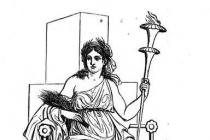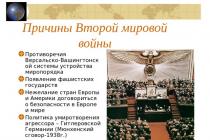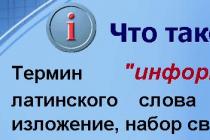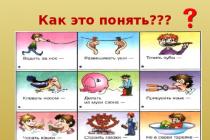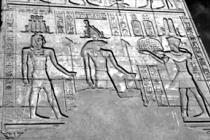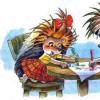All people are passionate about something and are interested in something. The object of passion for many people is Greek culture with all its gods and goddesses. It is quite difficult to understand all the intricacies of the Greek pantheon of gods at once. It's better to do this gradually. The goddess Demeter is where to start.
PedigreeAt the very beginning, it is worth noting that Demeter is the daughter of Rhea and Kronos, the sister of the almighty god Zeus, and that puts her on the same level as the most powerful and influential gods of Olympus.
Purpose
The goddess Demeter is considered the patroness of farmers, the mother of the fertility of the earth. According to legend, thanks to her and her daughter Persephone, the seasons change - only part of the year can mother and daughter spend together, then summer begins on earth. All other times, Persephone lives in a dungeon with her husband Hades, and at this time Demeter yearns and cries for her daughter, giving birth to rains, snowstorms and bad weather. And only when the hour of meeting approaches, a thaw sets in, Demeter begins to hope for a quick meeting and spring comes.

Image
The goddess Demeter is very attractive, and her image is warm and pleasant. So, her hair is like ears of ripe wheat, her face is sweet, and her body is lush and rich. At one time, it was precisely such women that attracted men, so Demeter was always desired by the opposite sex. The goddess's character is kind, she is calm and balanced, but with a painful sense of justice. She often brutally punished people who tried to deceive her or their own kind.
Art
The goddess Demeter was sung by many poets; a huge number of legends were written about her and paintings were written about her. She was often represented in the form of a wandering woman in search of her daughter, sometimes sitting, surrounded by the fruits of the earth. Her main attributes are ears of corn, symbols of fertility, as well as a torch as a symbol of the search for her lost daughter. Demeter considered the Snake and Pig her own.
Heritage
All gods had their followers - dedicated people. So, the origin of the name Dmitry is interesting, which stands for “dedicated to Demeter,” “one who worships Demeter, the goddess of fertility.”

Celebrations
Demeter is a goddess from the category of “first”, “great” goddesses who stand at the head of Olympus. That is why the people found a reason to honor Demeter on earth, creating a mother cult dedicated to her. Initiated women often reproduced in special mysteries the grief and longing of mother Demeter for her daughter. It was not so easy to become a participant in this ritual. It is imperative to fast first and cleanse yourself physically and spiritually. Next, those who were admitted to the mysteries drank a special drink - kykeon - and were allowed into the temple. What happened behind the doors of the temple always remained a secret, the disclosure of which was punishable by death. That is why little is known about these sacraments. But scientists suggest that the drink contained certain ingredients that changed the consciousness of each person, allowing them to fully surrender to what was happening with both soul and body. Those who underwent the mysteries were considered initiated into the mysteries of life and death and were in good standing with society. An interesting fact is that slaves were also allowed to participate in the mysteries.
Goddess Demeter
Demeter is the great goddess of the fertility of the earth, giving growth to everything that grows on the earth, giving fertility to the fields, blessing the work of the farmer. The Romans named the goddess Demeter after their ancient goddess of the fertile field - Ceres.

Goddess Demeter

Goddess of fertility
The great goddess Demeter is powerful. It gives fertility to the earth, and without its beneficial power nothing grows either in shady forests, or in meadows, or in rich arable land.

Goddess Demeter

Demeter (Ceres to the Romans) is one of the most revered goddesses in Greece. This is the goddess of fertility and agriculture, who was especially revered by farmers. Numerous festivals were celebrated in her honor throughout Greece. It is characteristic that in Homer’s poems the goddess Demeter seems to be relegated to the background. This proves that the Greeks began to honor her as the greatest goddess when agriculture became their main occupation, and cattle breeding lost its former importance.



Demeter is the goddess of fertility and agriculture, daughter of Cronus and Rhea, sister of Zeus, Poseidon, Hades, Hera and Hestia, mother of Persephone. The most ancient pre-Olympic deity.
The main myth about Demeter
The main myth about Demeter is associated with the tale of the abduction of Demeter's daughter, Persephone, by the god of the underworld Hades. Heartbroken, Demeter unsuccessfully searched for her daughter for nine days, and on the tenth day she learned from the all-seeing Helios that Persephone had been kidnapped by Hades with the consent of Zeus. The angry Demeter left Olympus and began to wander the earth in the form of an old woman. Meanwhile, the land stopped producing crops, famine set in, and sacrifices to the gods stopped. Zeus agreed to return Persephone to her mother on the condition that she spend part of the year on earth with Demeter, and the rest of the time she remained with Hades in the underworld.



Return to Olympus
Then Demeter returned to Olympus, and the earth again began to bring gifts. According to another myth, Demeter, having left Olympus, came to Eleusis in the form of an old woman. The wife of the Eleusinian king Keleus, Metanira, took Demeter as a nanny to her sons Demophon and Triptolemus. Deciding to make one of the children, Demophon, immortal, Demeter rubbed him with ambrosia and kept him over the fire at night. One day Metanira saw her son engulfed in flames and attacked Demeter. The child fell from the hands of the goddess and died in the fire. Then Demeter revealed herself to Metanira and Kelei. The goddess gave the second son, Triptolemus, an ear of wheat and taught him to cultivate the land, ordering him to teach all people agriculture.
DEMETER
(???????, Ceres). Goddess of agriculture, mainly the patroness of grain fruits. She was the daughter of Kronos and Rhea, sister of Zeus and Hades. From Zeus she had a daughter, Persephone, whom Hades took to his underground kingdom. Upon learning of the kidnapping of her daughter, Demeter, overwhelmed with grief and anger, forbade the earth to produce fruit, so Zeus was forced to send Hermes to the underworld for Persephone. Hades let her go to her mother, but forced her to first swallow a pomegranate seed; by this he obliged her to spend a third of the year with him, and for the remaining two-thirds of the year he let her go to her mother. Then the earth began to produce fruit again. This legend obviously refers to the periodic appearance of vegetation on the earth and its temporary disappearance. Demeter was considered a merciful, gracious goddess, the nurse of people. Partly through Triptolemus, partly herself, she taught people agriculture. In her honor the so-called Eleusinian Mysteries were established. Cows, pigs, fruits, and honeycombs were sacrificed to her. The Romans identified Demeter with their goddess Ceres. See Ceres.
A brief dictionary of mythology and antiquities. 2012
See also interpretations, synonyms, meanings of the word and what DEMETRA is in Russian in dictionaries, encyclopedias and reference books:
- DEMETER in the Dictionary World of Gods and Spirits:
in Greek mythology, the daughter of Crone and Rhea, the goddess of the fertility of the earth, and the hunt and harvest, the protector of public... - DEMETER in the Dictionary Index of Theosophical Concepts to the Secret Doctrine, Theosophical Dictionary:
Hellenic name for the Latin Ceres, goddess of grain and agriculture. Astronomical sign, Virgo. The Eleusinian festival was celebrated in her honor... - DEMETER
- goddess of fields, fertility, patroness of agriculture. Daughter of Kronos and Rhea. From the union with Zeus a daughter was born, Persephone (goddess of fertility and... - DEMETER
In Greek mythology, the goddess of fertility and agriculture, daughter of Kronos and Rhea (Hes. Theog. 453), sister and wife of Zeus, from whom ... - DEMETER in the Dictionary-Reference Book of Who's Who in the Ancient World:
("earth mother") Greek goddess of fertility, identified with the Roman Ceres. She is also the patroness of motherhood. Demeter's search for daughter Persephone (or Kore, i.e.... - DEMETER in the Lexicon of Sex:
(Greek - root "mother"), in Greek. mythology goddess of agriculture and fertility. The worship of D. was especially clearly expressed in the holding of the Eleusinian Mysteries. ... - DEMETER in the Big Encyclopedic Dictionary:
- DEMETER in the Great Soviet Encyclopedia, TSB:
in ancient Greek mythology, the goddess of fertility, patroness of agriculture; daughter of Kronos and Rhea, sister of Zeus. In the myth about D., which took shape... - DEMETER in the Encyclopedic Dictionary of Brockhaus and Euphron:
(Dhmhthr) - daughter of Kronos and Rhea, sister of Zeus, occupied a prominent place in Greek as the goddess of agriculture, civil order and marriage. ... - DEMETER in the Modern Encyclopedic Dictionary:
- DEMETER
in Greek mythology, the goddess of fertility and agriculture. Daughter of Kronos and Rhea, sister and wife of Zeus, mother of Persephone. Demeter was dedicated... - DEMETER in the Encyclopedic Dictionary:
s, zh., soul., with a capital letter In ancient Greek mythology: goddess of fertility and agriculture; the same as in ancient Roman mythology... - DEMETER in the Big Russian Encyclopedic Dictionary:
DEMETER, in Greek. mythology goddess of fertility, patroness of agriculture. Daughter of Kronos and Rhea, sister of Zeus, mother of Persephone. Rome corresponds to it. ... - DEMETER in the Brockhaus and Efron Encyclopedia:
(???????) ? daughter of Kronos and Rhea, sister of Zeus, occupied a prominent place in Greek... - DEMETER in the Popular Explanatory Encyclopedic Dictionary of the Russian Language:
-y, w. In Greek mythology: goddess of fertility, patroness of agriculture, nurse of people. Etymology: Greek name Demeter 'Demeter'. Encyclopedic commentary: Demeter has... - DEMETER in the New Dictionary of Foreign Words:
(gr. demeter) in ancient Greek mythology - the goddess of fertility and agriculture; the same as Ceres in ancient Roman mythology... - DEMETER in the Dictionary of Foreign Expressions:
[gr. demeter] in ancient Greek mythology - the goddess of fertility and agriculture; the same as in ancient Roman mythology... - DEMETER in the Russian Synonyms dictionary:
goddess, agriculture, ... - DEMETER in Lopatin’s Dictionary of the Russian Language:
Dem'etra, ... - DEMETER in the Spelling Dictionary:
dem`etra, ... - DEMETER in the Modern Explanatory Dictionary, TSB:
in Greek mythology, the goddess of fertility, patroness of agriculture. Daughter of Kronos and Rhea, sister of Zeus, mother of Persephone. It corresponds to the Roman... - PERSEPHONE in the Dictionary-Reference Book of Myths of Ancient Greece:
(Kora) - goddess of fertility and the kingdom of the dead. Daughter of Demeter and Zeus. The wife of Hades, who kidnapped her and took her to his... - PERSEPHONE in the Directory of Characters and Cult Objects of Greek Mythology:
In Greek mythology, the goddess of the kingdom of the dead. Daughter of Zeus and Demeter, wife of Hades, who, with the permission of Zeus, kidnapped her (Hes. Theog. ...
She was the goddess of agriculture and civil order. As the goddess of the fertility of the earth, she was in close relations with the three brothers, who divided power over the world among themselves. She gave birth to Persephone (Proserpina) to Zeus; Poseidon, who in the form of a stallion seduced her, who took the form of a mare, is the daughter and horse of Arion. The daughter of Demeter, Persephone was kidnapped by the underground god Hades in Enna (Sicily). Demeter wandered for nine days, looking for her daughter, but her plaintive cry was heard only by Hecate and Helios. When only on the 10th day Helios informed her about the kidnapping of her daughter, she left in anger Olympus and withdrew to Eleusis, to the king of that city, Kelei.
The abduction of Persephone. Antique jug, ca. 330-320 BC.
Here Demeter, taking the form of an elderly woman, sat down at the source; The daughters of Kelei greeted her affectionately and asked about her homeland. Demeter answered that her name was Deo, that she had been robbed by Cretan robbers, and asked them to shelter her. The girls' mother, Metaneira, took in the foreigner and entrusted her youngest son, Demophon, with her.
In the subsequent story, the goddess of agriculture and, in general, the creator of any culture, manifests herself by educating heroes of popular power. To give the boy Demophon eternal youth, Demeter put him in the fire at night, but Metaneira spied on this and prevented her with plaintive cries. Then the goddess revealed herself to her and ordered her to build a temple at the source, in which she settled. Still angry, she caused a crop failure throughout the land.
Great Gods of Greece (Greek Mythology)
In addition to Eleusis, the oldest place of the cult of Demeter, she was especially revered in Crete, Argolis, Arcadia, on the western coast of Asia, Sicily and Italy. Her cult was partly secret. Of the holidays established in honor of her, except those indicated above Thesmophorium, it should be noted the Athenian Proerosia, the holiday that preceded the cultivation of the fields, Chloe, - a sacrifice for the ripening but still green crops, Haloi(festival of threshing), Talisia- the festival of the first fruits of the field, and Eleusinia.
Goddess of fertility and agriculture.
The great goddess Demeter is powerful. She gives fertility to the earth, and without her beneficial power nothing grows in forests, meadows, or arable fields. She taught people agriculture, and at her command the grain ripens. And if a woman wants to be fertile, like the Earth itself, she makes sacrifices to the great Demeter.
In the month of sowing, the Greeks celebrated Thesmophoria in honor of Demeter.
Demeter and her children
Although the priestesses of the fertility goddess Demeter initiated the bride and groom into the secrets of the wedding night, the goddess herself did not have a husband. At a time of youth and fun, out of wedlock she gave birth to Persephone and the mighty Iakkha. She gave birth to Plutos from Iasion, with whom she fell in love at the wedding of Cadmus and Harmonia.
Iasion- son of Zeus and the galaxy of Electra, brother of Dardan, lover of Demeter.
Inflamed by the nectar they drank, which flowed like a river at the wedding, the lovers quietly slipped out of the house and made love in a thrice-plowed field. When they returned, Zeus guessed from their behavior and stained hands and feet what had happened between them, and indignant that Iasion dared to touch Demeter, he incinerated him with lightning.
Plutos- god of wealth and abundance, son of Demeter and Iasion.
From Iasion, Demeter gave birth to a son, Plutos, who became the god of wealth. He for the first time introduced the custom of caring for the goods of life, as well as collecting and storing money, whereas previously everyone treated the accumulation and careful saving of a lot of money with disdain.
Demeter and Triptolemus
Demeter's gaiety faded when she lost her only daughter, young Persephone. Hades, the god of the underworld, fell in love with her and kidnapped her. For nine days and nights without food or drink, Demeter searched for Persephone, calling in vain to her. On the tenth day, she changed her appearance and appeared in Eleusis, where she was hospitably greeted by King Kelei and his wife Metanira and offered to become the nurse of their newborn son Demophon. Demeter sat at the table, immersed in her sorrowful thoughts. The youngest daughter of the forest god Pan served at dinner - Yamba. She tried to cheer up the guest and entertained Demeter with funny, obscene poems, for which the goddess subsequently rewarded her. Demeter decided to thank Kelei and Metanira for their hospitality by making Demophon immortal. To do this, she rubbed him with ambrosia at night and put him in the fire to burn away his mortal nature. But at that moment Metanira entered, the spell was broken, and Demophon died. His parents started wailing and began to mourn their son. Then Demeter revealed herself to them and announced that she would give their son Triptolemus a gift like no other mortal.
Triptolemus- the son of the Eleusinian king Kelei and Metanira, the favorite of Demeter, who taught people the art of agriculture and taught them to sow and grow wheat.
It so happened that Triptolemus, who was tending his father’s cattle, recognized Demeter and told her where Persephone had disappeared. Two other shepherds saw Hades kidnap the young goddess and disappear underground. Having such evidence, Demeter demanded that her daughter be returned to her. But it turned out that Hades kidnapped her with the secret consent of Zeus. Demeter was so outraged by this that she continued her wanderings across the earth, forbidding the trees to bear fruit and the herbs to grow. And this continued until the human tribe was on the verge of extinction. Zeus, not daring to personally meet with Demeter, sent the Olympian gods to her with conciliatory gifts. It was decided that Persephone would have to spend three months of the year with her husband in the kingdom of the dead, and the rest of the time could be with her mother. After this, Demeter finally agreed to return home.
But before leaving Eleusis, she taught Triptolemus the secrets of her cult and mysteries. Young Triptolemus became the goddess's favorite. She gave him seed grain, a wooden plow and a chariot drawn by snakes, and sent him to teach people all over the world the art of agriculture. Before this, none of the people knew wheat or knew how to grow this cereal. With this knowledge, people gained real wealth.
Demeter and Erysichthon
Demeter was very good-natured, but Triop's son Erysichthon became one of the few whom she treated harshly. At the head of twenty companions, Erysichthon dared to enter the grove planted by the Pelasgians in honor of Demeter in Dotia, and began to cut down sacred trees there in order to build a new room for feasts. In the guise of the priestess of the grove, Nisippa, Demeter politely asked Erysichthon to leave. And only when, instead of answering, he swung an ax at her, the goddess revealed herself in all her greatness and doomed him to eternal pangs of hunger, no matter how much he ate. Returning home for dinner, he began greedily devouring everything that his parents put in front of him and could not stop. But the more he ate, the hungrier he became and the more he lost weight. Finally, when there was not a crumb left at home, he became a street beggar and even ate garbage.


